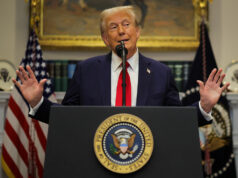Gov’t fully awards fresh 20-year bonds
By Karl Angelo N. Vidal, Reporter
THE GOVERNMENT raised P20 billion via fresh 20-year Treasury bonds (T-bond) it auctioned off on Tuesday due to strong demand as investors continue to park their funds in longer-dated securities amid easing inflation expectations at home and economic developments abroad.
The Bureau of the Treasury (BTr) yesterday made a full award of the 20-year debt papers it auctioned off on Tuesday, receiving bids amounting to P50.921 billion, more than twice the amount the government wanted to raise.
The debt notes fetched a coupon of 6.75% with an average rate of 6.716%, 26.3 basis points lower than the 6.979% fetched when the 20-year bonds were last issued on June 19, 2018.
To take advantage of yesterday’s strong demand, after the auction, the Treasury decided to open its tap and over-the-counter (OTC) facilities from 2 to 4 p.m.
The tap facility aimed to raise another P10 billion in 20-year papers carrying the same rate, which were offered to 10 financial institutions who have been named as market makers.
The Treasury also opened the OTC sale of the 20-year bonds to tax-exempt government-owned and -controlled corporations.
Based on the PHP Bloomberg Valuation Service Reference Rates, the 20-year IOUs were quoted at 6.83% yesterday.
Following the auction, National Treasurer Rosalia V. De Leon said the BTr is seeing good results in its auctions since the start of the year as investor appetite is flocking to the longer end of the curve.
“We are also seeing the shift of appetite towards the long end because investors are trying to maximize their yields, given that yields would be on a downhill. Even inflation is expected to trend downwards to the target,” Ms. De Leon told reporters yesterday.
Based on latest data, headline inflation eased to 5.1% in December from the 6% tallied the prior month as prices of food and transportation grew at a slower pace.
For 2018, inflation averaged 5.2% — faster than the central bank’s 2-4% target range and the highest since 2008’s 8.2%.
The Bangko Sentral ng Pilipinas is expecting inflation to return to “below four percent by around the end of Q1 2019,” well within its target band.
“At the same time, [we’re also seeing that] the Fed (US Federal Reserve) are going to be very patient and be on the sidelines watching for data,” Ms. De Leon added, noting that market players also factored in the International Monetary Fund’s (IMF) downgrade of its global growth outlook.
The IMF cut its growth forecast for 2019 by 0.2 percentage points to 3.5%, mainly due to the unsettled trade spat between the United States and China, as well the possible exit of the United Kingdom from the European Union without a deal.
Sought for comment, a bond trader said in a text message that the auction was “pretty good” as market participants are growing more confident about the domestic inflation picture.
The government plans to raise P360 billion this quarter through domestic means, broken down into P240 billion through 12 weekly Treasury bill auctions as well as P120 billion through six fortnightly T-bonds auctions.
The state wants to borrow P1.189 trillion in 2019 to fund its spending plans. Of the amount, 75% will be sourced domestically while the remainder will be from foreign creditors.
However, the 2019 national budget has yet to be passed by Congress and signed into law, leaving the fiscal program hanging so far.
FUND-RAISING OPPORTUNITIES
Meanwhile, Ms. De Leon said the Treasury is “watchful of opportunities” to offer foreign currency-denominated instruments and is already preparing in order to easily conduct any issuance if such a window opens.
“We have to be nimble. For example, if there is a compelling reason for us to go again to the market, like for example in dollar from the second to third quarter given where the rates are, then we have to also assess for opportunities,” she said.
The National Treasurer said a yuan-denominated or “panda” bond issuance is already “on the table” as part of the government’s move to diversify its funding sources.
“Bank of China, siya ‘yung sa (will be the) lead [issuer], so eventually magkakaroon naman ng (there will be) selling banks,” Ms. De Leon said.
Meanwhile, the BTr is also “doing some market sounding” from five banks before going into the Japanese market to offer yen-denominated or “samurai” bonds.
The Finance department previously said that the government intends to return to offshore bond markets 12-18 months following its issuance of panda bonds last March as well as yen-denominated bonds last August.



